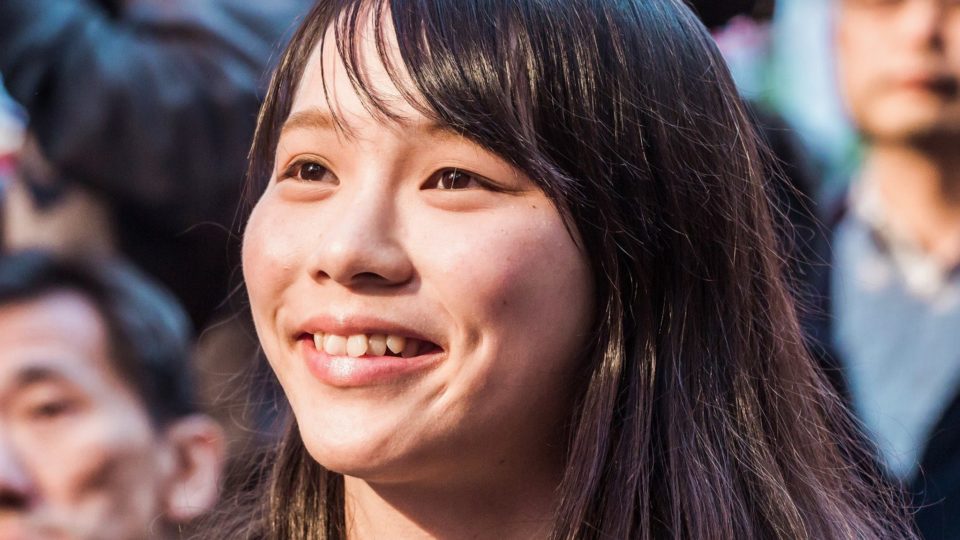[UPDATED] One of Hong Kong’s best-known democracy activists was banned Saturday from standing as lawmaker in upcoming elections, the latest blow to freedoms in the city as Beijing tightens its grip.
Agnes Chow, 21, a former leader of the mass Umbrella Movement protests of 2014 that called for political reform, had her nomination rejected because she supports self-determination for the semi-autonomous city, the government said.
It comes as fears grow that political debate is being shut down under pressure from an assertive Beijing, with the recent jailing of democracy activists fueling concern.
The emergence of campaigners calling for independence for Hong Kong since the failure of the Umbrella Movement to win reform has incensed Beijing, and President Xi Jinping has made it clear that he will not tolerate any challenge to Chinese sovereignty.
The pro-Beijing Hong Kong government has previously barred independence activists from standing for office, but Chow’s ban is the first against a more moderate campaigner.
She had been hoping to stand in by-elections in March, which were triggered by the disqualification from the legislature of six lawmakers who protested while taking their oaths of office in 2016.
“Self-determination or changing the Hong Kong Special Administrative Region (HKSAR) system by referendum which includes the choice of independence is inconsistent with the constitutional and legal status of HKSAR,” the government said.
It added that someone who “advocates or promotes” self-determination or independence cannot uphold the city’s mini-constitution, the Basic Law.
Chow is a member of Demosisto, a political party co-founded by leading democracy campaigner Joshua Wong, who is currently on bail after being jailed for his role in the 2014 rallies.
Demosisto does not campaign for independence but advocates self-determination and a referendum for Hong Kong people to decide how they want to be governed.
The ban on Chow has wide-scale implications for other similar activists wanting to stand for office, including Wong.
‘Right to decide’
Demosisto said it condemned what it called a political decision and a “purge” by the Chinese Communist Party.
“The government’s motivation is to eliminate the hopes of an entire generation of young people,” it said in a statement.
Chow said that Demosisto as a party did not advocate independence.
“But we believe Hong Kong people have the right to decide on our future and our lifestyle,” she told reporters.
The ban is also another setback for the pan-democratic camp, which is trying to win back the six seats it lost due to the disqualifications.
Losing those seats robbed it of the one-third minority vote needed to block important bills in the pro-Beijing legislature.
Hong Kong was handed back to China by Britain in 1997 under a “one country, two systems” deal that grants it a partially elected legislature and rights unseen on the mainland, including freedom of speech and the right to protest.
But there are growing fears those liberties are being eroded.
The Basic Law specifies that Hong Kong is an “inalienable” part of China, however, activists say that does not mean views challenging that status should be silenced, given that freedom of speech is protected.
Rights group Human Rights Watch accused Beijing and Hong Kong authorities of “redoubling” efforts to undermine the already limited electoral rights of citizens.
“This is another act in Beijing’s play to chip away Hong Kong’s autonomy,” said Maya Wang, HRW’s senior researcher on China.




